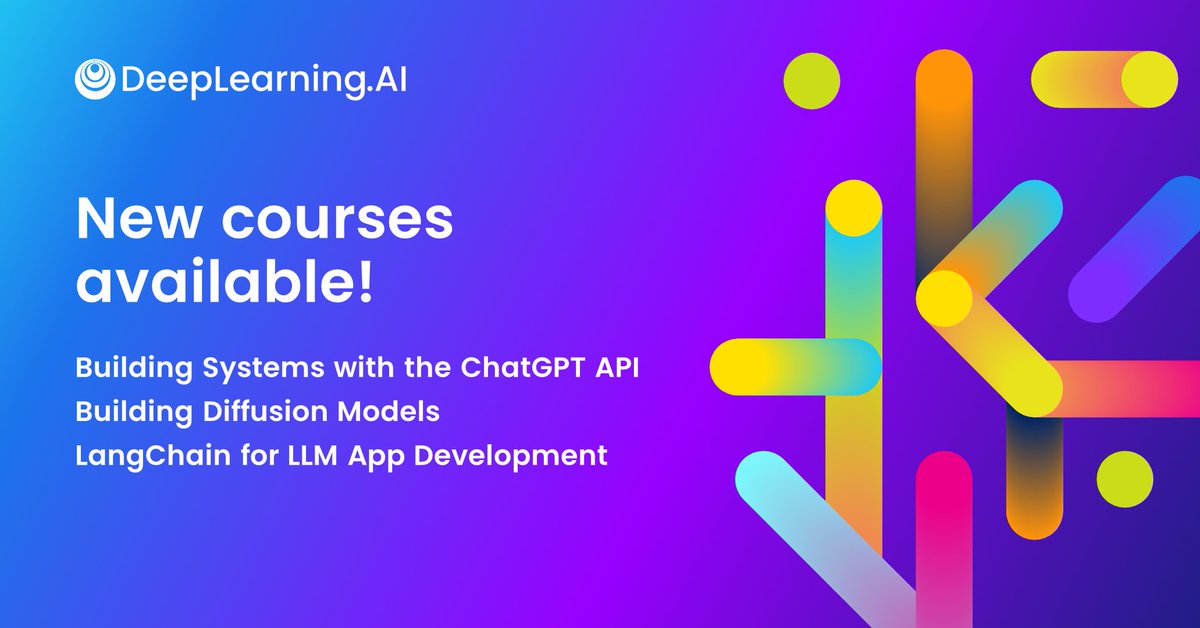
Co-Founder of Coursera; Stanford CS adjunct faculty. Former head of Baidu AI Group/Google Brain. #ai #machinelearning, #deeplearning #MOOCs
14 subscribers
How to get URL link on X (Twitter) App


 @isafulf @hwchase17 @realSharonZhou 2/Building Systems with the ChatGPT API: Go beyond individual prompts, and learn to build complex applications that use multiple API calls to an LLM. Also learn to evaluate an LLM's outputs for safety and accuracy, and drive iterative improvements. learn.deeplearning.ai/chatgpt-buildi…
@isafulf @hwchase17 @realSharonZhou 2/Building Systems with the ChatGPT API: Go beyond individual prompts, and learn to build complex applications that use multiple API calls to an LLM. Also learn to evaluate an LLM's outputs for safety and accuracy, and drive iterative improvements. learn.deeplearning.ai/chatgpt-buildi…